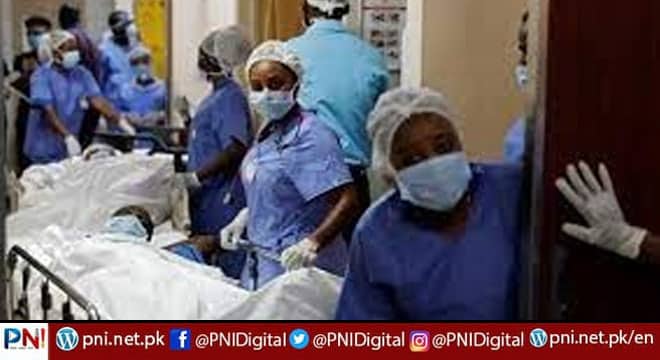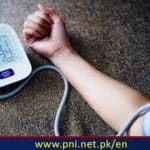Islamabad, SEP 11(Online): My scrubs and title empower people to ask me, “What’s it like to be on the front line of the COVID-19 pandemic?” These people are well-intended, but they have it wrong.
Kyle Briggs is a physician assistant specializing in cardiac critical care.
I’m not on the front line. Rather, as a [physician assistant]-intensivist who never leaves the ICU, I’m the last line of defense. I’m part of a team that deals with the sickest patients in the hospital.
My patients need invasive machines and potent medications to maintain proper oxygen levels in their blood to stay alive.
Some develop multisystem organ failure and require machines to not only take control of their breathing but also of their cardiac or kidney function.
Stay informed with live updates on the current COVID-19 outbreak and visit our coronavirus hub for more advice on prevention and treatment.
These people require thorough, thoughtful, and detailed care. Entering and exiting out of their rooms safely and without exposure to the virus is tedious and slow.
Extraordinary concentration is required at all times to ensure everyone’s safety. Rushing things places not only my patients but also my team and myself at risk.
We’re all in peril when we’re stretched thin and forced to rush.
All of our years of training have conditioned us to act quickly yet decisively to save as many lives as possible in as short a time as possible. We can take care of only a finite number of patients at once because of the meticulous details that must be kept, and the more intentional pace at which we can act.
The pace of COVID-19 patients arriving in ICUs is already increasing. When this influx swells, all of our stresses multiply, like the virus itself.
You don’t see it at home, but those of us inside the hospital are terrified that the increase of new patients will be so dramatic that we’ll run out of resources to care for them.
Protective gowns and masks that keep hospital workers safe are, indeed, already in short supply. We hope that the numbers don’t increase so fast that we become overwhelmed and can’t keep up, or we become so tempted to rush off and help elsewhere that we place our patients and ourselves at risk.
A long and lasting impact
The hard, cold reality is, in extreme situations, we simply cannot take care of everyone at the same time. This virus is already killing people, despite maximum support with appropriate resources.
Thankfully, this is not the norm. Our team is well trained and highly skilled. We will save many lives before this pandemic is over. But the pace of new cases is ever quickening with increasingly more patients coming in for our complex level of care.
My greatest fear is that people will die because our time, resources, and facilities were simply overwhelmed. The numbers and percentages of deaths may not shock you. But I assure you, their faces, and the expressions on the faces of their loved ones, leave a long, lasting, horrifying impact.
My team and I are committed to our profession, and we will continue to place ourselves in harm’s way. We will exhaust ourselves. We’ll work with shortages of personal protective equipment. We’ll take extra precautionary measures to keep from inadvertently bringing the virus home to our families.
Some of us will not go home for weeks or even months in order to keep our families and community members safe.
We will do our best because we don’t get to control who comes through the doors or when. We only look after them once they are with us.
Follow the PNI Facebook page for the latest news and updates.








